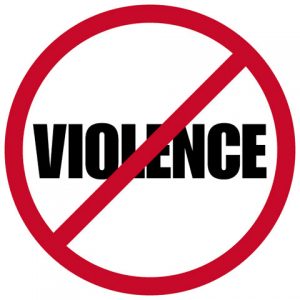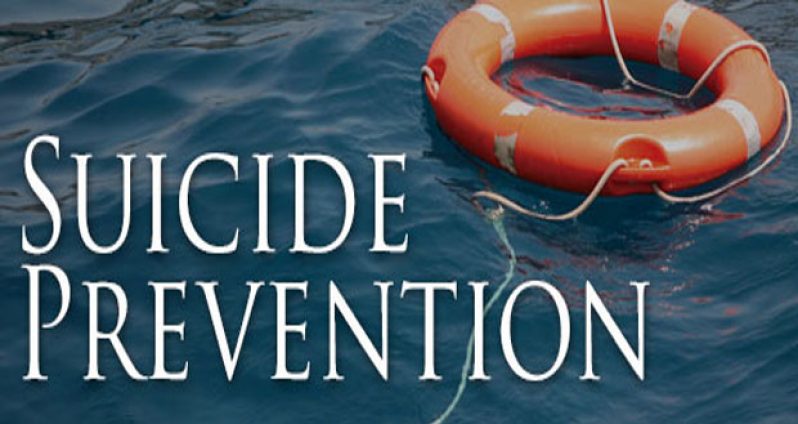SUICIDE is a big issue in some Caribbean nations, especially Guyana, but like any other problem, the scourge can be prevented.Chair of the Violence Prevention Alliance in Jamaica, Dr Elisabeth Ward, said deaths by suicide can be reduced if access to the means used in the process is restricted.

In a lecture at the recently-concluded Caribbean Public Health Agency’s (CARPHA) 60th Health Research Conference at the St George’s University Campus in Grenada, Dr Ward said this step was at one time taken by the US with much success.
REDUCED ACCESS TO MEANS
She told the conference that when suicide was reaching alarming levels, the US Government reduced access to firearms, addictive drugs and carbon monoxide, which were primarily used by victims.
The move, she said, resulted in a significant drop in the suicide rate in the US. In Guyana, the majority of persons who commit suicide do so by consuming poison. Most of them are in the agricultural areas where pesticides are easily accessible.
For the period 2010 – 2012, some 359 persons here committed suicide by drinking poison, of which 191 were men. Guyana has since moved to restrict access to these substances.
With a rate of 44.2 deaths per 100,000, Guyana is way above the global average of 11.4 per 100,000 and the average rate in Latin America and the Caribbean, which stands at 6.1 per cent per 100,000.
MENTAL HEALTH TREATMENT
Dr Ward pointed out that access to mental health treatment is also essential in the prevention of suicide, more particularly for persons who have suicidal thoughts and have attempted suicide.
In Guyana, it is estimated that unreported suicide attempts is about 20 per cent more than reported attempts. In the informative lecture which shed light on violence and injury and how they can be prevented, Dr Ward contended that investment in suicide prevention is worth the while, pointing out that every dollar invested saves the region 5 dollars in return.
To counter the prevalence of suicide, Guyana has developed a National Suicide Prevention Strategy and has been improving access to mental health, among other measures.

The culture of violence in the Caribbean, the health expert said, can also be reduced through strategic interventions.
In the fight against violence, she contended that boot camps, individual counselling, short probation, programmes not modelled on basic military training, peer remediation and multi-component gang resistant training, do not work.
WHAT DOES WORK
What does work, she contended, are life-skills training, pre-school education, home visits, parental training, educational incentives for average students, school-based violence prevention, micro-finance with gender equity training and family therapy and reducing access to lethal means.
Dr Ward, a former Director of Disease and Prevention Control, Jamaica, said when these interventions are made in school, the results include orderly classrooms, improvement in students’ behaviour, less hyper students and positive parent contact.
She also pointed out that in Jamaica, a home nursing visitation programme has seen a 48 per cent reduction in child abuse. Speaking from Jamaica’s experience, Dr Ward said with every dollar invested on home visits, the Government saves more than 3 dollars in return.
Proper parenting, she also noted, decreases hospitalisation and childhood maltreatment, and with structured activities, delinquency is reduced and there are greater levels in cognition, education attainment and behaviour.
The forum also heard that violence and injuries are also major issues affecting the region. In Guyana, violence accounts for 26.1 per cent of deaths in the age group 1-44 years.
Guyana has a ratio of 100 deaths per 100,000 persons. Already so far this year, more than 80 persons in Guyana have been murdered.
Violence aside, it was noted that Guyana, Trinidad and Tobago and Jamaica have the highest number of injuries by death in the region.
With violence, suicide and accidents being major problems in Guyana, Chief Medical Officer Dr Shamdeo Persaud said these issues, which are complex in nature, would have to be addressed through a multi-stakeholder approach. And Guyana has already begun efforts in this regard.
Dr Ward told the conference that if violence and injuries are reduced by 20 per cent, more than 1,800 lives in the region would be saved.
The reduction will also result in a 37 per cent increase in investment, a 14 per cent increase in tourism earning and a 5.4 per cent increase in Gross Domestic Product.
By Tajeram Mohabir



.jpg)









